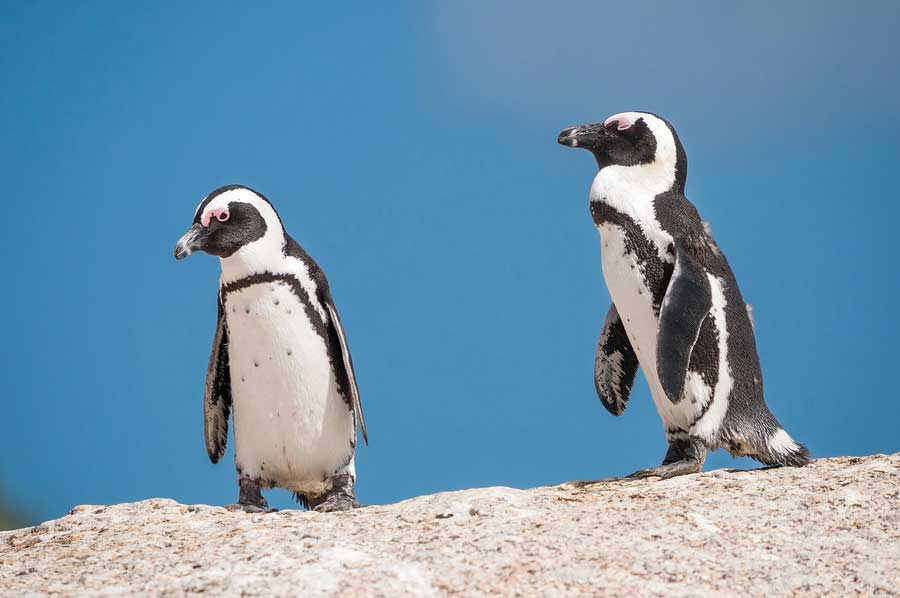Cape Town, South Africa – The African penguin, commonly referred as the black-footed penguin is at risk of extinction. Since 2004, the population has decreased by 90% along South Africa’s west coast due to the mass migration of anchovies and sardines, which are their primary food source. The African penguin is endemic to Southern Africa (South Africa and Namibia) and it is Africa’s only extant penguin (apart from the four species that breed in the South-West Indian Ocean).
It is still uncertain for scientists why the fish have moved in the first place. They suggested that climate change and overfishing may be the cause, but mathematical modelers of the fish populations have determined that it is not the case. In fact, they determined that the impact of fishing is minimal. They claim that predators, boat disturbances, nest flooding, and heat stress are the causes instead.

In any case, due to the decrease of the penguins, four main fishing grounds, extending across 12.4 miles, have been declared off-limits seven years ago as an effort to save the species. According to penguin biologists, this strategy should leave more fish for consumption and boost the survival rate by 18%.
The facts
To this day, only 100,000 of the birds inhabit in all of South Africa and Namibia. Moreover, the Worldwide Union for Conservation of Nature declared the African Penguin endangered in 2010. In contrast, South Africa’s largest penguin colony had 1 million African Penguins by the 1930’s.
Significant losses were recorded in the period 2004–2015 at Dassen and Robben islands where adult survival rates plummeted, influenced by displacements to the Southeast of the main prey of African penguins (sardine and anchovy). This chages caused a mismatch in the distributions of prey and a large decrease in sardine biomass. “The impact of an altered distribution of prey may have been exacerbated by fishing in the vicinity of the Western penguin colonies”, according to the Environmental Affairs of the Republic of South Africa.
In the meantime, the fishing bans are still in effective. Moreover, the International Union for Conservation of Nature declared the African penguin as an endangered species.
Source: Environmental Affairs of the Republic of South Africa
